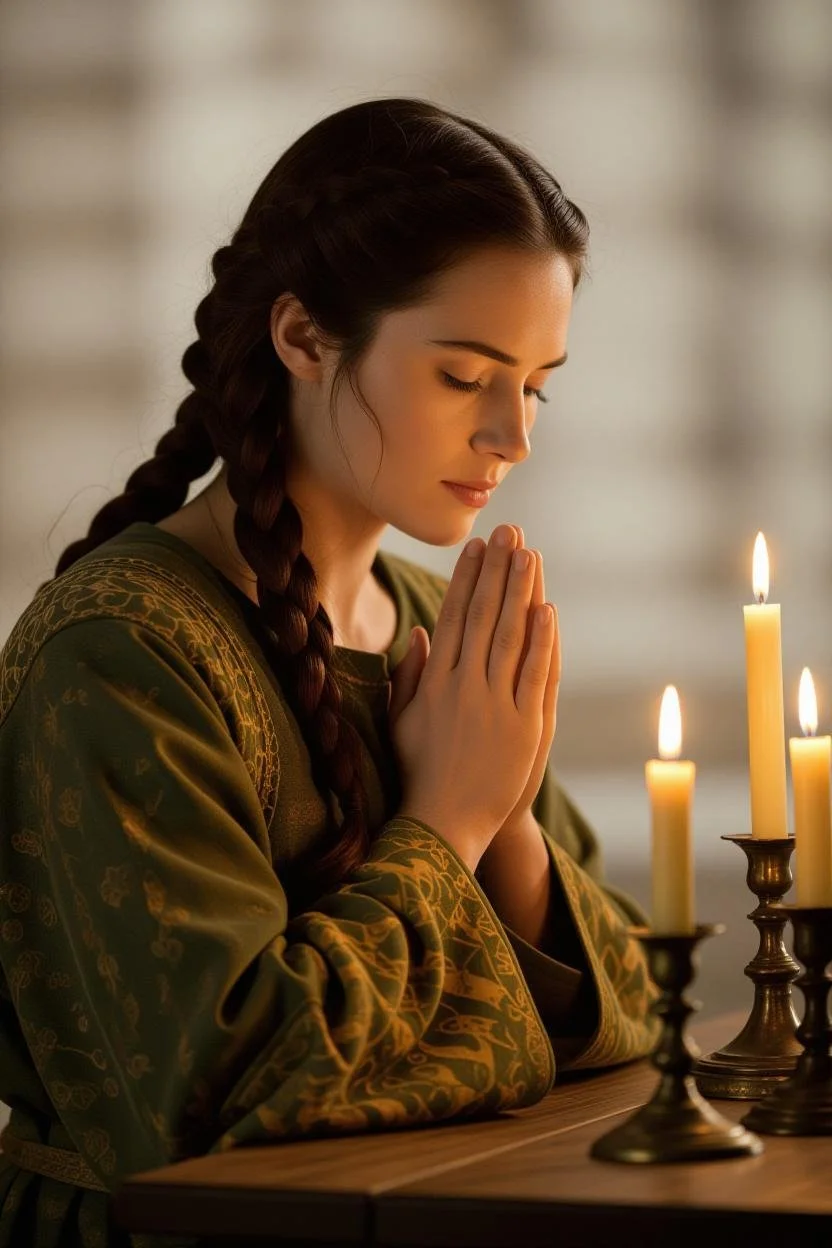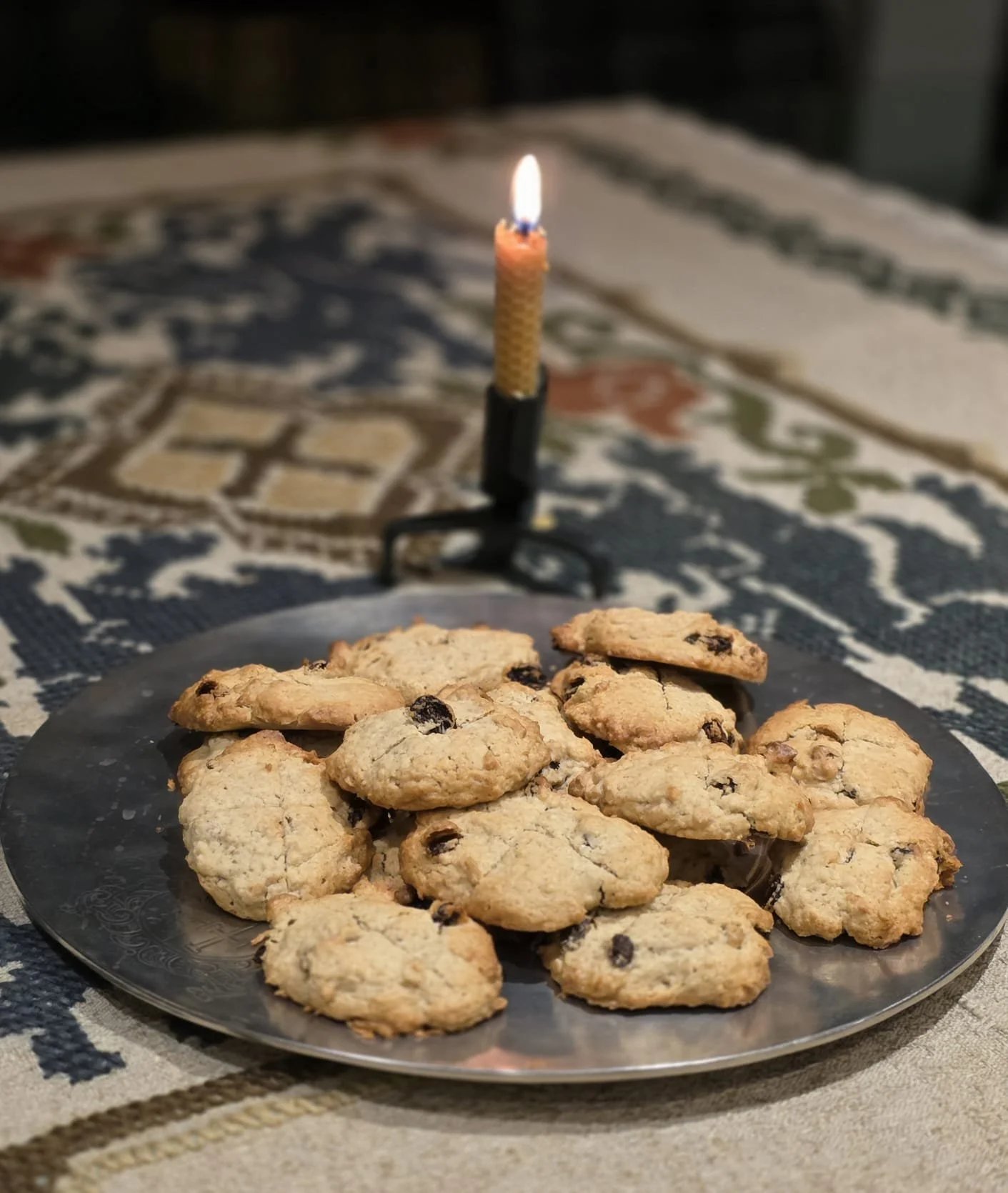All Souls’ Day: Soul Cakes, Prayer and Memory
The Closing of Allhallowtide
As the bells of All Saints’ Day fall silent, a gentler sound takes their place: the slow, measured knell for the departed.
2 November, All Souls’ Day, was the moment when the living turned their hearts toward those of the departed, the ordinary people, not the saints, who still journeyed through Purgatory.
The season of light ended not in mourning, but in the hope that love and prayer could reach beyond the grave.
Origins and Etymology
The word soul comes from Old English sawol, “the spiritual essence of a person.”
The “Mass of Souls,” or Soul Mass Day, was first proclaimed in 998 AD by Abbot Odilo of Cluny. He ordered that every monastery in his order should celebrate a Mass for “all the faithful departed.” From Cluny, the custom spread throughout Europe.
Yet its roots run deep into pagan soil.
Romans had their Parentalia, a spring festival for the dead where families brought cakes and wine to tombs.
Celts laid food on thresholds at Samhain to honour their ancestors.
Christianity sanctified these gestures, again absorbing pagan customs to smooth the transition to the ‘true faith’. And so, the offering of food became the offering of prayer.
Medieval Customs and Charity
In medieval England, bells tolled throughout the night to remind the faithful to pray. Candles were lit in windows to guide souls to the light, and families brought bread and ale to church to be shared with the poor. Those who received these gifts promised to pray for their benefactors’ departed loved ones.
Soul Cakes
Homemade Soul Cakes
The origins of the ‘soul cake’ are veiled in smoke and superstition. Some believe they were offerings to the gods, cast into bonfires to secure next year’s harvest. Others say they were flung to the shadows, meant to soothe the wandering dead, the spirits condemned to roam the world in beastly guise (a bit like the ‘revenants’ Walter Map described). More then likely, both were true, with local customs varying.
Yet by the 8th century, the Church had tamed these pagan embers. The soul cake was sanctified: fire now charity, not sacrifice.
On All Souls’ Eve, beggars and children went from door to door, offering prayers for the departed in exchange for a round of sweet bread.
One cake given, one soul remembered.
Soul cakes, or ‘soul-mass cakes’, often simply referred to simply as ‘souls’, were given out to ‘soulers’, mainly children and beggars who would go from door to door during the days of Allhallowtide, singing and offering prayers for both the souls of the givers and their deceased relatives, thought to be in Purgatory, a transition place of purification between Earth and Heaven.
They would sing:
“A soul! a soul! for a soul-cake!
Pray you, good mistress, a soul-cake!”
Souling at Allhallowtide
Each treat given was a token of mercy; a simple act linking the living to the dead.
Recipe for Soul Cakes
From the English Heritage Baking Book
These small, spiced biscuits were given to souling children or left for visiting spirits on the hearth. Unlike modern cookies, they use ingredients available in 12th-century England.
INGREDIENTS:
300g plain flour
2 tsp ground mixed spice
A pinch of nutmeg
150g butter, diced
150g caster sugar
75g currants
2 egg yolks (or 1 whole egg, beaten)
2 tbsp milk
1 tbsp oats
½ tbsp cider vinegar
METHOD:
§ Preheat the oven to 180°C, fan 160°C, gas 4. Sift the flour, spices and a pinch of salt into a mixing bowl, then add the butter and rub in with your fingers. Stir in the oats, currants and sugar.
§ Whisk the egg, milk and cider vinegar together until just combined, then stir into the dry ingredients. Bring together into a soft dough, and add more milk if the dough is too dry.
§ On a floured surface roll out to about 5mm thick. Stamp out the soul cakes with a 6-7cm round cutter, and score a cross lightly on the top. Transfer to two well-greased baking trays.
§ Bake for 15-25 minutes until pale golden brown. Cool on a wire rack, and enjoy!
Each biscuit represents a soul remembered and a prayer spoken. Serve warm with ale or spiced cider while the bells toll for the departed.
A Medieval Evening of Remembrance
Imagine a cold November night in medieval Lincoln…
Church bells mark the hours; candlelight glows in windows. Inside, families kneel by the hearth, reciting psalms for their dead. A small plate of soul biscuits rests on the table—one for each name remembered. Outside, children sing for souls beneath the fading stars.
Thus ends the journey of Allhallowtide, from the fires of Samhain to the candles of remembrance. This year let’s honour our dead as our ancient and medieval ancestors once did: with light, soul cakes, and love.


